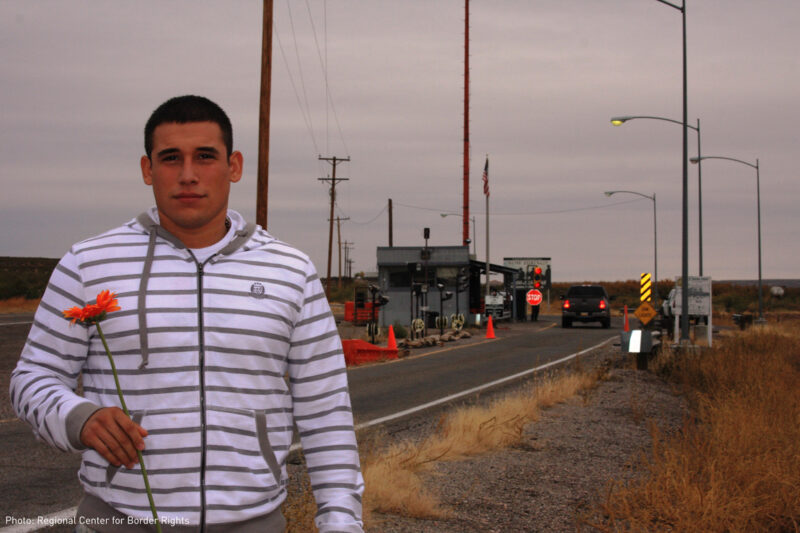Border Patrol Chief Must End Biased Policing to Restore Trust in Communities


The House Border and Maritime Security Subcommittee will hold a hearing tomorrow, September 13, to discuss Border Patrol’s power grab in the government’s 100-mile border zone. For me, this hearing isn’t about efficiency. This is about my right — and the rights of roughly 200 million Americans — to travel freely and be respected in my community.
Border patrol operates interior checkpoints up to 100 miles into the country where all motorists, without any suspicion of wrongdoing, are forced to answer to armed federal agents. These checkpoints operate based on decades-old rules written at the same time when Border Patrol launched “Operation Wetback.” While the racially biased names for border policing strategies may have changed, their discriminatory legacy lives on.
I’m a U.S. citizen, born and raised in Salem, a small colonia in southern New Mexico. I recently completed my master’s degree in criminal justice from New Mexico State University in Las Cruces, New Mexico, but I didn’t need a textbook to learn what it’s like to drive while brown in border communities.
I grew up commuting through government checkpoints to go food shopping, see a movie, and, most recently, attend college. Every time I get in my car and drive, I open myself to traveling through a Border Patrol checkpoint and being racially profiled.. Border Patrol agents have demanded to know the city where I was born, detained me for a dog to sniff my vehicle because I refused to consent to a search, and even mocked me for being unemployed when I took time off during summer break.
And I’m not alone. A recent investigation into the practices of the El Paso Sector Border Patrol found that 90 percent of abuses in over 50 cases were reported by U.S. citizens, and 80 percent of them identified as Hispanic or Latino. I dedicated my master’s study to understanding how other young, brown New Mexicans get by: sit up straight, turn down the radio, keep your hands in sight, stay calm no matter what they say, and comply with their commands.
This is the normalized routine for many of the roughly 50 percent of fellow New Mexicans who identify as Hispanic or Latino based on the latest U.S. census data. Or as I like to call it, this is second-class citizenship.
Put yourself in my shoes. Imagine the insult of a government agent questioning you weekly about whether you belong in the community where you were born. Then imagine the false choice I face: I can surrender my rights and go home safely, wondering what is the point in having constitutional rights if I can’t exercise them. Or I can respectfully ask if I’m free to go, knowing that such an act could be an invitation for violence. Violence should never be the response to exercising one’s rights, yet police have killed Black men for much less, and Border Patrol has similarly allowed agents to shoot unarmed teenagers, including through the back, with impunity.
I truly respect Border Patrol agents. I studied criminal justice with the intention to join law enforcement. I decided, however, that I couldn’t participate in military-style, discriminatory policing of our nation’s safest communities — my home.
While Border Patrol insists on asking where I was born, the question I struggle with is why am I in this situation in my own country? Why is Border Patrol permitted to treat me, a U.S. citizen, differently due to the color of my skin? Why are they not required to document the multiple times they have detained me on the highway when I’ve done nothing wrong? Why hasn’t Border Patrol addressed the devastating impacts of implicit bias?
If the members of the House committee care about fairness and justice in the enforcement of our laws, then I hope they’re asking the same questions of Border Patrol’s new chief, Mark Morgan. Holding his agents responsible for respecting individual rights and rebuilding trust in communities like mine will require acknowledging the sins of the past and promising new levels of transparency in the future. Chief Morgan can start by strictly prohibiting racial profiling at Border Patrol checkpoints that sever border communities and rob residents like me of our dignity.
Stay informed
Sign up to be the first to hear about how to take action.
By completing this form, I agree to receive occasional emails per the terms of the ACLU's privacy statement.
By completing this form, I agree to receive occasional emails per the terms of the ACLU's privacy statement.

